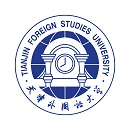The university also boasts one State-level Teaching Team, four State-level Majors with Distinctive Features, one State-level Pilot Project of Comprehensive Reform on Undergraduate Education, two State-level Top-quality Courses, and one State-level Top-quality Resources Sharing Course.
Currently, TFSU has an enrollment of over 12,000 full-time degree candidates from 29 provinces, municipalities and autonomous regions of the country. Following the university’s motto, it devotes itself to nurturing well-rounded, high quality interdisciplinary talents with strong abilities of self-directed learning and intercultural communication. The university makes great efforts to pursuing an education featuring “major + foreign language”, with a view to producing talents with solid professional knowledge and strong foreign language competency.
TFSU is home to a dozen research and think tank institutions including the Collaborative Innovation Center for CPC Literature Translation and Transmission, the Center for CPC Literature Translation Studies co-established with the Central Compilation & Translation Bureau (CCTB), the Center for Latin-American Studies—an MOE Base for Area and Country Studies, the Center for Foreign Language, Literature and Culture—a key municipal-level higher education base for humanities and social sciences studies, the Center for Linguistic Semiotics and the Center for Northeast Asia Studies as well as the Tianjin Institute for International Development Studies, the Institute for European and American Cultural Philosophy and the Institute for Comparative Literature. The university boasts two Municipal-level Higher Education Innovative Teams, and has an overseas think tank—the Center for Sinology Studies in one of its Confucius Institutes, forming an academic research platform system which serves the development of the university, the city and the country as a whole.
The university has established cooperative ties with some 200 universities and a number of educational institutions in over 40 countries. As one of the first universities authorized by Hanban (China’s Confucius Institute Headquarters) to keep a pool of reserve Chinese language teachers for the Confucius Institutes across the globe, it has co-hosted seven Confucius Institutes with the corresponding prestigious universities overseas, and was honored as one of the “Outstanding Confucius Institute Chinese Partners”. As well, by establishing branches of South Korea’s King Sejong Institute and Germany’s Goethe Language Center in Tianjin, it offers educational additional training programs.




